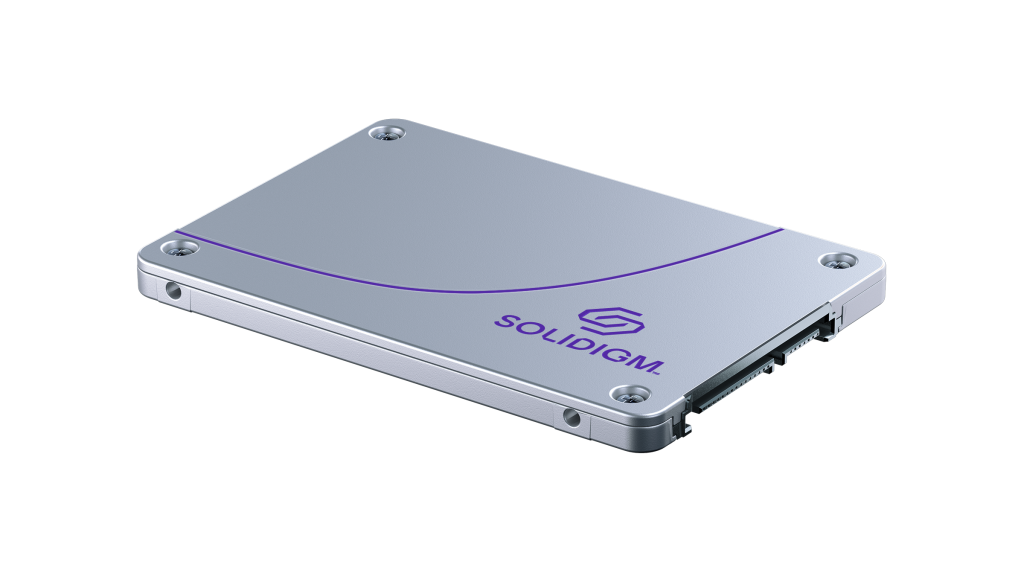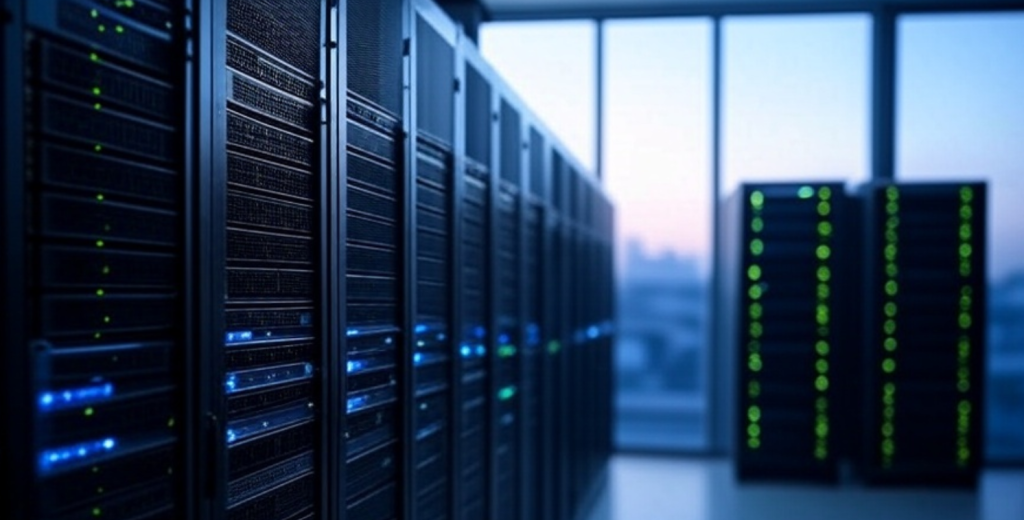Solidigm, a leader in SSD technology, offers solutions they claim significantly outpace HDDs in performance, reliability, and efficiency. This article delves into the reasons why Solidigm believes enterprise SSDs are the superior choice for modern data centres.

The Limitations of Traditional Hard Drives
HDDs have long been the backbone of data storage, but their mechanical nature introduces several drawbacks:
- Slower Performance: HDDs rely on spinning disks and moving read/write heads, resulting in higher latency and slower data access speeds.
- Higher Failure Rates: Mechanical components are prone to wear and tear, leading to increased failure rates over time.
- Greater Power Consumption: The mechanical operation of HDDs consumes more power, generating more heat and requiring additional cooling.
- Limited Scalability: Physical size constraints and lower data densities limit the scalability of HDD-based storage solutions.
Solidigm SSDs
Solidigm’s enterprise SSDs address these limitations head-on, providing a range of benefits that make them the preferred choice for modern enterprises.
Quick Comparison: Solidigm SSDs vs Traditional HDDs
| Feature | Traditional HDDs | Solidigm Enterprise SSDs |
|---|---|---|
| Data Access Speed | Slower (mechanical latency) | Ultra-fast (flash-based) |
| Reliability | More prone to mechanical failure | Highly reliable, no moving parts |
| Energy Efficiency | High power draw, more cooling | Low power consumption |
| Storage Density | Lower density per unit | Up to 122.88TB in single SSD |
| Total Cost of Ownership | Higher long-term costs | Lower due to fewer failures, less energy use |
| Maintenance Needs | Regular replacement and upkeep | Minimal maintenance |
1. Exceptional Performance
Solidigm SSDs offer lightning-fast data access speeds. The Solidigm D5-P5316, for instance, boasts up to 25x sequential read performance over conventional HDDs, ideal for data-intensive tasks, high-throughput applications, and latency-sensitive services.
2. Enhanced Reliability and Uptime
Enterprise environments demand reliability. With no moving parts and advanced wear-levelling algorithms, Solidigm SSDs drastically reduce the risk of mechanical failures, ensuring consistent performance and data integrity over long operational periods.
3. Energy and Environmental Efficiency
Solidigm’s SSDs are built for sustainability. They draw significantly less power than HDDs, resulting in lower cooling requirements and reduced carbon footprints. This makes them ideal for organisations aiming to meet sustainability targets while lowering operational expenses.
4. Maximum Capacity and Compact Form Factors
Modern data growth calls for scalable storage. Solidigm’s D5-P5336 SSD can provide up to 122.88TB per drive, enabling denser, more space-efficient data centres. This helps optimise rack space while reducing the physical footprint of storage infrastructure.
5. Lower Total Cost of Ownership (TCO)
Although upfront SSD costs are higher, the long-term savings are clear: lower power consumption, fewer hardware replacements, and reduced downtime. Solidigm SSDs are built for endurance and efficiency, translating to a lower TCO over the lifespan of the hardware.
6. Flexible Deployment Across Workloads
Solidigm enterprise SSDs are engineered to support a wide array of demanding applications:
- Databases and OLTP Systems: Low latency improves transaction speed and query response.
- Virtualisation & VDI: SSDs minimise boot storm effects and ensure fast VM provisioning.
- Big Data & Analytics: SSD throughput ensures rapid ingestion and analysis of large datasets.
- Media & Entertainment: SSDs handle 4K/8K video workloads and real-time editing with ease.
7. Ease of Integration and Management
Solidigm offers management tools and firmware updates that integrate seamlessly into existing infrastructures. Their SSDs support industry-standard protocols like NVMe and provide telemetry features for predictive maintenance and performance tuning.
8. Future-Proofing Your Infrastructure
With increasing data volumes and AI-driven workloads on the rise, Solidigm’s roadmap aligns with tomorrow’s IT demands – supporting PCIe Gen 4 and future-ready technologies that scale with business growth.
Transitioning from traditional HDDs to Solidigm’s enterprise SSDs offers numerous advantages, including superior performance, enhanced reliability, energy efficiency, and long-term cost savings.
Contact our experts today to discuss Solidigm Solutions: https://exertisenterprise.com/solidigm/

